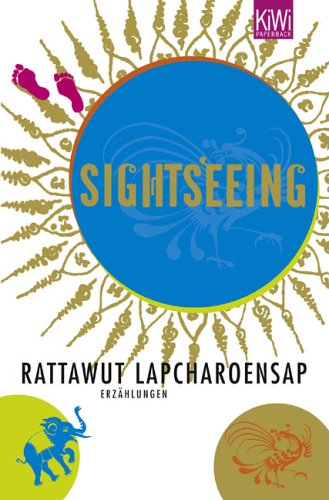1) Hi Nada, can you tell us what you've been up to since graduating from THINK Global School in 2022? Since graduating in 2022, I've been pursuing a passion I found while at TGS, sustainability, and I am currently majoring in engineering in renewable energy systems at Al Akhawayn University, in Ifrane, Morocco. But there is way more than that! I've had a chance also to explore the world of...
Read MoreTGS tenth grader Charis recently turned in an insightful report based on the short story “Priscilla the Cambodian”, which details the ever-looming cloud of prejudice that hangs over Cambodians living in Thailand today. The report can be found in its final draft below:

Prejudice cannot see the things that are because it is always looking for things that aren’t.
-Unknown.
THE WORLD WE LIVE IN is inhabited by all sorts of different people, yet we are all the same in a way. Differences, however, can scare us and make us come with judgements without concrete reasons. This can lead to a negative division not to anyone’s advantage. In the short story “Priscilla the Cambodian” from the book Sightseeing, Rattawut Lapcharoensap uses a change in the main character’s attitude to elucidate a broader prejudice against Cambodians in Thai culture and pose a possible solution.
Prejudice is caused by the lack of understanding. The Thais in this story are raised with comments that Cambodians bring diseases and rats, and even that they are “the real rats” (1429). The main character was taught by his parents to be scared of the “Khmer Rouge” (1320), in which Khmer means Cambodian. He doesn’t even know what “Khmer Rouge” means, yet his guess is it’s bad. This causes fear in him towards Cambodians and thus a barrier between the people.The main character’s friendship with Priscilla breaks this barrier, changing how he thinks of Cambodians. The author here explores the area of how friendship between children could bring forth changes in prejudice between groups of people. Younger people tend to have a less solid view of things. They are more open to changes and new ideas.
The main character’s change of attitude gives a comparison between before and after. “Before we met Priscilla, Dong and I in our unflappable boredom would sometimes stand on the rail and throw rocks just to hear the satisfying clang on the Cambodians’ corrugated roofs” (1267). This states the change of how he used to treat the refugees with no respect, but somehow he changed after meeting Priscilla. In the beginning, his view on the Cambodians was much influenced by the views of his parents. However, getting to know one of them allowed him to see things from their point of view, and how they are in reality. When his father’s friends were drunk, the character had felt the urge to “tell the men that the refugees had built a proper outhouse hidden discreetly behind a hedge”(1432), and that they “didn’t s**t and p**s indiscriminately like Father had said” (1432). He, unlike the adults he used to believe, had finally gotten to know the Cambodians and see life from the other side. It might have been the Thai culture of that fear for adults that stopped him from saying it out loud. Hopefully, getting to know other cultures and seeing the contradiction would encourage him to say out the truth despite cultural barriers.
“Priscilla the Cambodian” goes through a climax where the change of the character’s attitude becomes clear. The new idea of having empathy for the refugees is put in the spotlight when the guys in the development burned the Cambodians’ shantytown. “I walked down the stairs with my heart in my mouth” (1446). When he saw the clues that lead to the prediction of what his father might be doing, he feels sorry for the victims. His description of the fire as “that awful red flickering” (1446) shows the grief he feels for the Cambodians’ shantytown being burnt. He asks, “What about Priscilla?” (1446). This suggests the fact that friendship gives space for empathy and care. Thais are actually known to be kind, and so it shouldn’t be too hard for them to accept a new people once they defeat their fear of the unknown. It brought a big change to one person, and that one person could bring a change to another person, and so forth. This could branch out into even hundreds of people with changed minds, just by that one person.
Prejudice is mostly caused not by logical reason, but rather the lack of understanding. Rattawut Lapcharoensap states in “Priscilla the Cambodian” that realizing this could bring forth a change. Most adults are harder to convince of a new idea, but children aren’t. Everyone should be allowed to explore their opinions. Adults might have a messed up idea, but children shouldn’t be led to that too.